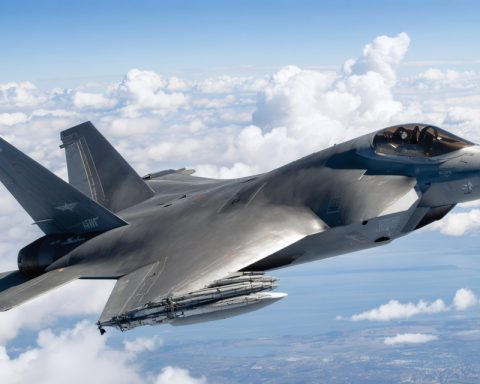Norway Takes Charge: Strengthening Airspace Security in Poland
Starting this December, Norway is set to bolster the security of airspace above Rzeszów airport in Poland. The Norwegian defense ministry has announced a deployment of approximately 100 soldiers, F-35 fighter jets, and advanced air defense systems to the region.
Strategic Role of Poland
Poland plays a crucial logistical role in military support efforts, and defense officials emphasize the importance of ensuring that aid destined for Ukraine reaches its target seamlessly. The contribution from Norway aims to ensure the safety of these operations by safeguarding critical transport hubs like Rzeszów.
Deployment Details
The protection initiative will include four state-of-the-art Norwegian F-35 aircraft along with comprehensive air and anti-aircraft defense systems, specifically assigned to fortify Poland’s airspace and NATO’s eastern perimeter. This effort has been hailed as a significant security enhancement for the area.
Key Infrastructure
Situated just under 100 kilometers from the Ukrainian border, Rzeszów airport is vital. It handles 90% of the Western military aid transiting towards the combat zones and serves as a primary stopover for international diplomats heading to Kyiv.
Poland’s Acknowledgment
Polish officials have expressed gratitude towards Norway for this crucial security support, marking it as a significant collaboration among allies to ensure stability in the region. The reinforcement was previously highlighted as necessary due to the airport’s strategic importance and proximity to active conflict zones.
Norway Reinforces Security in Poland: Key Developments and Implications
Enhanced Security Measures: Insights and Innovations
Starting this December, Norway’s deployment to Poland marks a significant leap in airspace security enhancements. The presence of advanced Norwegian F-35 fighter jets, along with cutting-edge air defense systems, reflects an innovative approach to safeguarding critical infrastructure in NATO’s eastern perimeter. The integration of these systems is poised to set new trends in defense collaborations throughout the region.
Technological Advancements and Specifications
The deployment highlights the technological prowess of the Norwegian F-35 aircraft, renowned for their stealth capabilities, superior maneuverability, and advanced avionics systems. These fighter jets represent the pinnacle of modern military aviation, ensuring an unmatched defense overlay across Polish airspace.
Strategic Use Cases and Compatibility
Norway’s commitment underscores Poland’s strategic importance. Positioned less than 100 kilometers from Ukraine, Rzeszów airport serves as a linchpin for military logistics. The enhanced security apparatus ensures seamless operations, safeguarding a pivotal transit hub for military and diplomatic movements. This deployment enhances compatibility within NATO’s defensive framework, strengthening regional stability.
Sustainability and Future Predictions
The deployment by Norway is an exemplar of sustainable defense cooperation, fostering long-term stability in a geopolitically sensitive area. As tensions in Eastern Europe persist, such collaborations may become more frequent, setting a precedent for future multinational defense strategies. Analysts predict that the integration of such advanced defense systems may propel further innovations in secured airspace management across Europe.
Expert Reviews and Analysis
Military analysts have praised the Norwegian initiative, citing the deployment as a robust response to the evolving security challenges in Eastern Europe. This shift is viewed as a testament to Norway’s proactive stance on international security, reinforcing Poland’s defenses and showcasing a unified NATO front in volatile times.
Resource for Further Information
For more on Norway’s defense strategies and broader international collaborations, visit the official website of the Norwegian Government.












